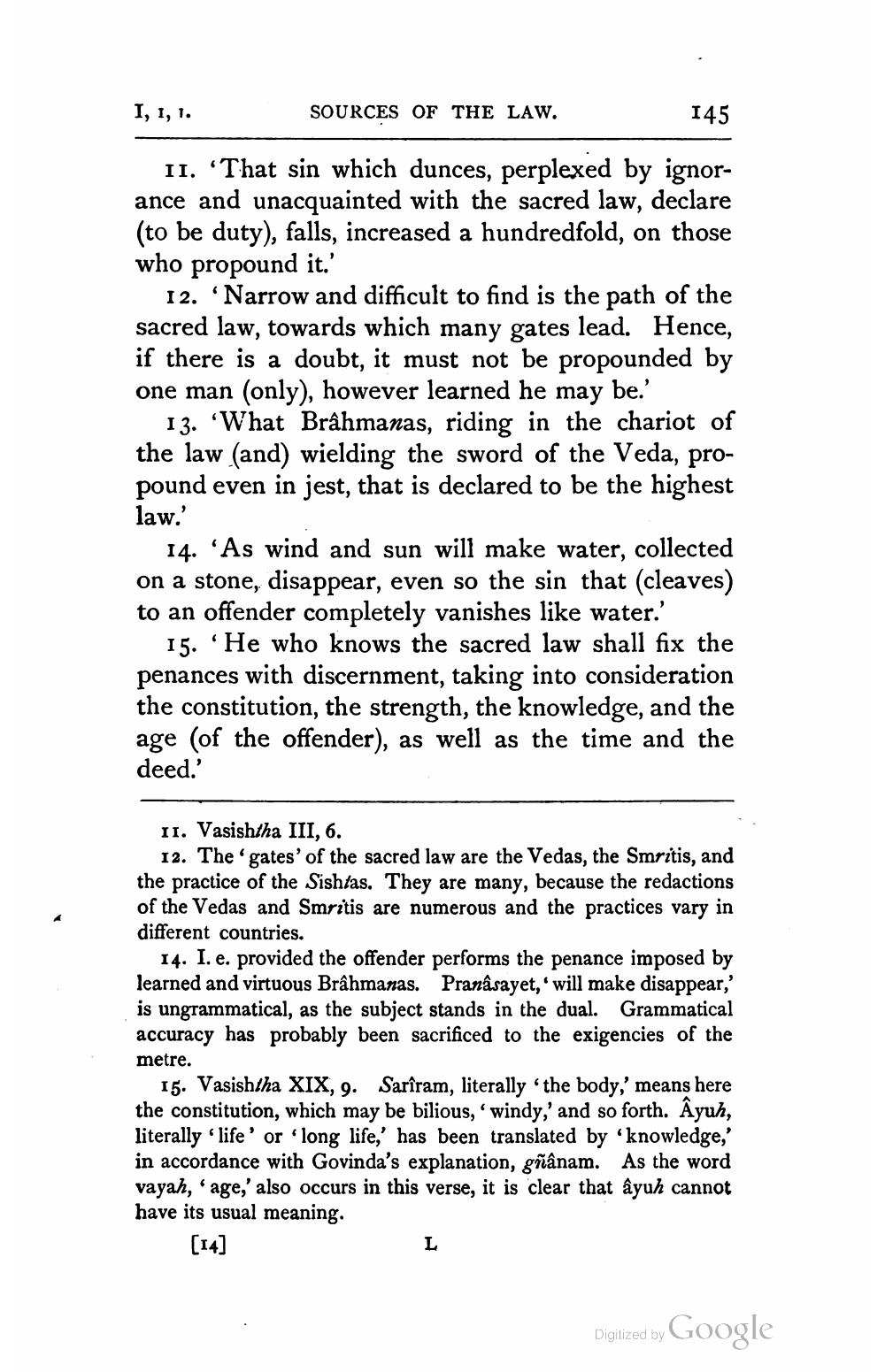________________
I, 1, 1.
SOURCES OF THE LAW.
145
II. “That sin which dunces, perplexed by ignorance and unacquainted with the sacred law, declare (to be duty), falls, increased a hundredfold, on those who propound it.'
12. 'Narrow and difficult to find is the path of the sacred law, towards which many gates lead. Hence, if there is a doubt, it must not be propounded by one man (only), however learned he may be.'
13. “What Brâhmanas, riding in the chariot of the law (and) wielding the sword of the Veda, propound even in jest, that is declared to be the highest law.'
14. 'As wind and sun will make water, collected on a stone, disappear, even so the sin that (cleaves) to an offender completely vanishes like water.'
15. He who knows the sacred law shall fix the penances with discernment, taking into consideration the constitution, the strength, the knowledge, and the age (of the offender), as well as the time and the deed.'
II. Vasishtha III, 6.
12. The gates' of the sacred law are the Vedas, the Smritis, and the practice of the Sishtas. They are many, because the redactions of the Vedas and Smritis are numerous and the practices vary in different countries.
14. I. e. provided the offender performs the penance imposed by learned and virtuous Brahmanas. Pranâsayet, will make disappear, is ungrammatical, as the subject stands in the dual. Grammatical accuracy has probably been sacrificed to the exigencies of the metre.
15. Vasishtha XIX, 9. Sarîram, literally the body,' means here the constitution, which may be bilious, windy, and so forth. Ayuh, literally "life' or 'long life,' has been translated by 'knowledge,' in accordance with Govinda's explanation, gñânam. As the word vayah, age,' also occurs in this verse, it is clear that âyuh cannot have its usual meaning.
[14]
Digitized by Google




